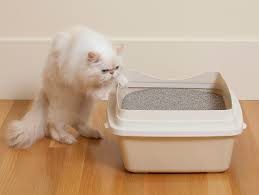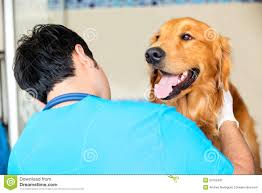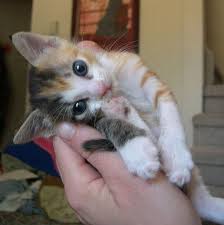Archive for June, 2015
Keep Your Cats Litter Box Clean
 It’s important to keep your litter boxes clean. Get in the habit of scooping the urine and feces out of your litter box everyday. Every two weeks, clean the entire box by removing the litter and clean the box with mild dishwashing soap and warm water. If possible, allow the box to air dry in the sun to kill the germs. If you do use bleach to disinfect the box, use a very weak solution and rinse thoroughly before drying. Cats don’t like the strong odor of bleach.
It’s important to keep your litter boxes clean. Get in the habit of scooping the urine and feces out of your litter box everyday. Every two weeks, clean the entire box by removing the litter and clean the box with mild dishwashing soap and warm water. If possible, allow the box to air dry in the sun to kill the germs. If you do use bleach to disinfect the box, use a very weak solution and rinse thoroughly before drying. Cats don’t like the strong odor of bleach.
I recommend getting a second litter box. This way while one is drying, your cat will always have a place to go. You should always have at least two litter boxes if you have more than one cat.
Remember, your pets count.
Great music all the time on six stations. Check out THE EDGEWATER INTERNET RADIO NETWORK today!
Caring For An Older Dog
 When dogs age, there are a number of conditions that could limit their responses to you.Partial hearing loss or even deafness can occur. When your dog loses his hearing, he may not run over and great you when you come home. They will continue to lie down until they feel the vibration of your feet on the floor as you come toward them. Impaired vision or even blindness can occur. You may a first notice this in the evening when the lighting is poor. The cause for this is sclerosis in the lenses of the eyes or cataracts. Your pet may have trouble recognizing you because all he’s seeing is shadows. Sometimes, older dogs develop a kind of mental disorientation which is called cognitive dysfunction. They may be restless or wander around the house. Some will go into a corner and not know how to get out. Some dogs will bark at nothing.
When dogs age, there are a number of conditions that could limit their responses to you.Partial hearing loss or even deafness can occur. When your dog loses his hearing, he may not run over and great you when you come home. They will continue to lie down until they feel the vibration of your feet on the floor as you come toward them. Impaired vision or even blindness can occur. You may a first notice this in the evening when the lighting is poor. The cause for this is sclerosis in the lenses of the eyes or cataracts. Your pet may have trouble recognizing you because all he’s seeing is shadows. Sometimes, older dogs develop a kind of mental disorientation which is called cognitive dysfunction. They may be restless or wander around the house. Some will go into a corner and not know how to get out. Some dogs will bark at nothing.
Your older dog should be evaluated by your veterinarian every six months or so. He will monitor his condition and prescribe the proper treatment or pet medication if necessary. Remember to be patient and always give him plenty of tender loving care!
Remember, your pets count!
Great music on six great radio stations on THE EDGEWATER INTERNET RADIO NETWORK!
Scary Moment for Me and Molly
My cat Molly who is now almost 16 is very attached to me. She usually winds us sleeping in my bed every night. This morning, I woke up and found Molly next to me. As I turned, she suddenly began to roll violently. She rolled off the bed and seemed to have trouble getting up. She slid under the bed. I panicked! I didn’t know what happened to her. She came out from under the bed, still very shaken up. I held her for awhile. I put her down and she slowly began walking. I thought that she may have had a seizure or even worse. She is older, so it’s natural to worry. She had a similar situation about six months ago. I was brushing her and she seemed to lose her balance. She just had her yearly checkup and she checked out fine. Today, I am watching her closely. She seems fine now. She’s jumping up on things and eating normally.
Cats can experience seizures although I’m thinking that either Molly was having a dream when I turned around towards her or she got dizzy when trying to get up. It’s a very up setting experience to see your pet in distress. Always consult with your vet if any strange symptoms occur or persist.
Remember, your pets count!
Great music, check out our six stations on THE EDGEWATER INTERNET RADIO NEtWORK!
Detecting Canine Cushing Disease
 As your pet ages, watch for any changes in his health. If you dog is middle aged or older and has a pot belly, it may not be because you give him too many dog treats. It may be that he has Cushing’s disease. This is a hormonal imbalance that occurs when a dogs adrenal glands begin secreting too much cortisol. It’s a common condition among Poodles, Boston Terriers, Dacshunds and Boxers. Symptoms of Cushing’s Disease include, lethargy, excessive thirst and urination, and a pot belly. Uniform hair loss on both sides of the body,vomiting and diarrhea may also occur. If your older dog develops any of these symptoms, talk to your veterinarian. Treatment for Cushing’s Disease varies but it is most effective if it’s started early.
As your pet ages, watch for any changes in his health. If you dog is middle aged or older and has a pot belly, it may not be because you give him too many dog treats. It may be that he has Cushing’s disease. This is a hormonal imbalance that occurs when a dogs adrenal glands begin secreting too much cortisol. It’s a common condition among Poodles, Boston Terriers, Dacshunds and Boxers. Symptoms of Cushing’s Disease include, lethargy, excessive thirst and urination, and a pot belly. Uniform hair loss on both sides of the body,vomiting and diarrhea may also occur. If your older dog develops any of these symptoms, talk to your veterinarian. Treatment for Cushing’s Disease varies but it is most effective if it’s started early.
Remember, your pets count!
Great music on THE EDGEWATER INTERNET RADIO NETWORK
Get Your New Kitten Vaccinated!
 You’ve just adopted a very young kitten who has not yet had any vaccines. Now’s the perfect time to get off to a good start. Don’t worry about all of the cat toys and accessories now, vaccinations are very important at an early age. All new kittens need a series of vaccines that are spaced between 3 and 4 weeks apart. You should start the vaccination series when your kitten is between 6 and 8 weeks old. Essential vaccines include rabies (this is required by law in New Jersey) and the FVRCP combination vaccine that protect against the common feline viral infections. Some health organizations also recommend the feline leukemia vaccine for all kittens. I would strongly recommend this as well. This is essential if your cat goes outdoors. There are also many “non-essential” vaccines that can be recommended by your veterinarian.
You’ve just adopted a very young kitten who has not yet had any vaccines. Now’s the perfect time to get off to a good start. Don’t worry about all of the cat toys and accessories now, vaccinations are very important at an early age. All new kittens need a series of vaccines that are spaced between 3 and 4 weeks apart. You should start the vaccination series when your kitten is between 6 and 8 weeks old. Essential vaccines include rabies (this is required by law in New Jersey) and the FVRCP combination vaccine that protect against the common feline viral infections. Some health organizations also recommend the feline leukemia vaccine for all kittens. I would strongly recommend this as well. This is essential if your cat goes outdoors. There are also many “non-essential” vaccines that can be recommended by your veterinarian.
After the series of vaccinations are completed, a first year booster for both rabies and FVRCP is required. Rabies is given yearly after this and FVRCP is often given every three years for indoor cats. Another important item that should be considered for all kittens is parasite screening, routine deworming (most kittens have worms either from their mother or the environment) and retrovirus screening. This includes leukemia and feline immunodeficiency virus.
As soon as you get your kitten, get him in for a checkup. If he is sick, the disease will take over quickly and could be fatal. Many years ago when I was very young, I adopted a kitten. I didn’t take him for a checkup and he developed feline distemper and within two days, he died. Had I known at the time how important these checkups are, I may have been able to save him.
Remember, your pets count!
Six stations with lots of variety on THE EDGEWATER INTERNET RADIO NETWORK!
